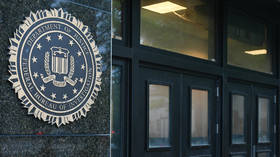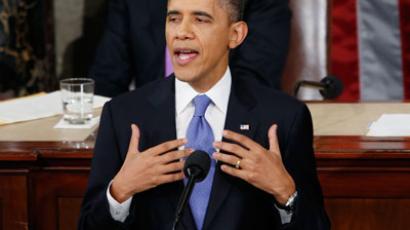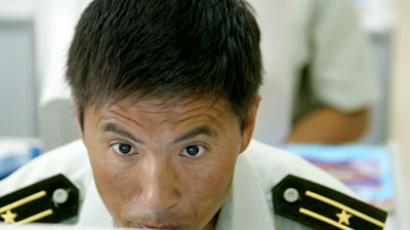S. Korea probes North’s involvement in cyber attack that 'paralyzed' banks, broadcasters

South Korea has stepped up its information surveillance status following a cyber-attack that paralyzed banks and broadcasters. A team of investigators is now looking at the origins of the massive network failure.
Government officials told South Korean news agency Yohap that malware caused the paralysis of the computer networks.
Following the attack police issued a statement saying they were investigating reports of a hack attack that brought down a number of South Korean broadcasters, as well as two banks. Investigators have not managed to ascertain the origins of the attack, including whether or not North Korea had a hand in a possible cyber-attack.
No government-linked computer networks were affected in the incident, an official told Yohap news agency.
"Reports have been made simultaneously so we have dispatched investigators to the scene," a police officer handling cyber-terrorism said to Yohap. He went on to say all possibilities were being considering.
Among the broadcasters hit by the hack attack were KBS, MBC and YTN networks, reported Yohap news agency. Shinhan and Nonghyup banks also experienced problems with their computer systems.
North Korea was suspected to have targeted the South before in two cyber-attacks in 2009 and 2011. The hacks struck government agencies as well as financial organizations.
Cyber warfare
North Korea was suspected to have targeted the South before in two cyber-attacks in 2009 and 2011. The hacks struck government agencies as well as financial organizations.
Seoul believes that the North has an active cyber-warfare unit, manned by around 3,000 staff. Last year the Korean Internet Security Agency registered 40,000 cases of cyber-attacks, a large percentage of which were of foreign origin.
"South Korea is an IT superpower with good infrastructure but remains relatively vulnerable to hacking," Park Soon-Tai, manager of the agency's hacking response team told AFP.
Tensions have escalated over recent weeks on the Korean Peninsula with Pyongyang upping its warmongering rhetoric against the South over US-South Korean military exercises in the region. Following the UN Security Council resolution against North Korea’s third nuclear test, Pyongyang has noticeably hardened its position on its nuclear weapons program.
During a visit to Seoul on Monday US Deputy Defense Secretary Ashton Carter said Washington would put all its military resources at South Korea’s disposal if it is threatened by the North.
"We remain steadfast to our commitment to extended deterrence offered by the US nuclear umbrella," Carter said after talks with South Korean Defense Minister Kim Kwan-Jin
South Korea recently sealed a deal with Washington which allows it to use long-range missiles with the ability to strike deep into North Korean territory.














